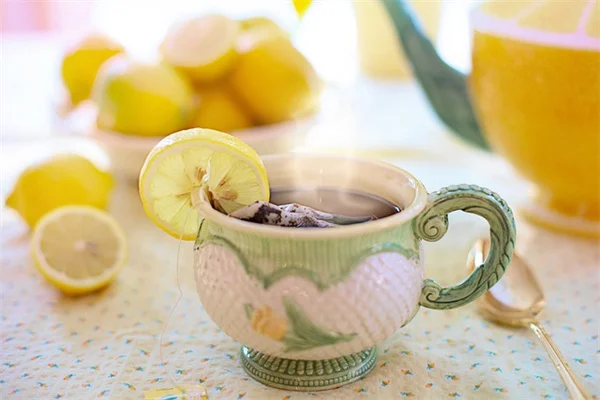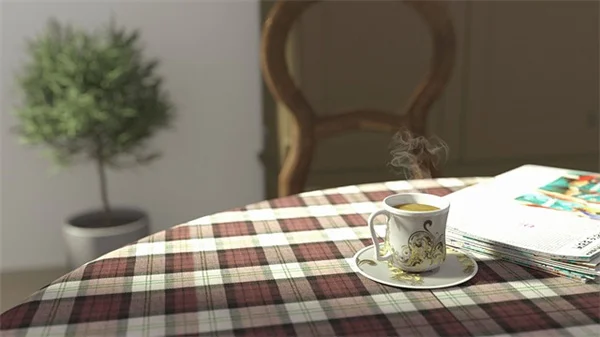Can everyday plastics increase your risk of heart disease? The answer is yes - and the numbers are shocking. A new study reveals that phthalates in common household plastics may contribute to over 350,000 cardiovascular deaths globally each year among people aged 55-64. I've been researching this topic for years, and let me tell you, these findings are a wake-up call for all of us.Here's what you need to know right now: these dangerous chemicals lurk in everything from your food packaging to your vinyl floors. The study found South Asia and the Middle East are hardest hit, with about 17% of heart deaths linked to plastic exposure. But don't think you're safe if you live elsewhere - even clean-living Canada shows a 13% connection.The good news? You can protect yourself. Simple changes like ditching processed foods and switching to glass containers can make a real difference. Stick with me through this article, and I'll show you exactly how to reduce your plastic exposure without turning your life upside down.
E.g. :Perimenopause Fatigue: How Heavy Periods Drain Your Energy
- 1、Your Plastic Lifestyle Might Be Killing You (Literally)
- 2、Plastic Problems Beyond Your Heart
- 3、How to Ditch the Plastic Without Losing Your Mind
- 4、Simple Swaps for a Plastic-Free Life
- 5、Beyond Plastic: Boosting Your Overall Health
- 6、The Bottom Line
- 7、The Hidden Plastic Invasion in Your Home
- 8、The Plastic Footprint You Never Considered
- 9、Unexpected Places Plastic Hides
- 10、Plastic-Free Living Doesn't Mean Going Back to the Stone Age
- 11、Your Plastic Reduction Game Plan
- 12、FAQs
Your Plastic Lifestyle Might Be Killing You (Literally)
The Shocking Truth About Everyday Plastics
Did you know that the plastic container holding your lunch could be putting your heart at risk? A groundbreaking study just revealed that phthalates - those sneaky chemicals making your plastic bendy - might be contributing to serious cardiovascular problems for people aged 55-64.
Let me break it down for you: researchers found these plastic chemicals in everything from your kid's toys to your shampoo bottle. And get this - they estimate these substances played a role in over 350,000 deaths worldwide in just one year! That's like the entire population of Tampa vanishing because of plastic exposure.
Where These Plastic Villains Hide
You won't believe how many everyday items contain these troublemakers:
- Vinyl flooring (that "new house smell"? Might be plastic chemicals)
- Garden hoses (watering your plants with microplastics?)
- Food packaging (your "healthy" salad might come with plastic side effects)
- Even your clothes (that comfy polyester hoodie? Plastic party!)
| Region | % of Heart Deaths Linked to Plastics |
|---|---|
| South Asia & Middle East | 17% |
| Latin America | 13% |
| East Asia & Pacific | 13% |
| Canada | 13% |
| Australia | 12% |
| Africa | 12% |
Plastic Problems Beyond Your Heart
 Photos provided by pixabay
Photos provided by pixabay
More Than Just a Heart Issue
Think plastic only messes with your ticker? Think again! Over the past 25 years, scientists have connected these chemicals to:
• Fertility problems (your plastic water bottle might be cramping your baby-making style)
• Asthma attacks (that air freshener could be freshening your trips to the ER)
• Weight gain (yes, plastic might be making your jeans tighter)
• Cancer risks (the scariest one of all)
The Bottled Water Bombshell
Here's a fun fact that'll make you spit out your drink: a single liter of bottled water can contain up to 240,000 plastic fragments! That's like drinking a plastic snow globe. And chewing gum? Each gram releases hundreds of microplastics - you're basically chewing on plastic bubblegum.
How to Ditch the Plastic Without Losing Your Mind
Supermarket Smarts
Want to avoid plastic without becoming a hermit? Start in the grocery store:
• Ditch processed foods (those shiny plastic wrappers aren't doing you favors)
• Shop the perimeter (that's where the fresh stuff lives)
• Bring your own containers (the cashiers might look at you funny, but your heart will thank you)
 Photos provided by pixabay
Photos provided by pixabay
More Than Just a Heart Issue
Time to break up with your plastic kitchenware! Here's why:
Did you know that microwaving plastic containers is like sending your food through a chemical car wash? The heat makes those nasty phthalates jump right into your meal. Instead, try these swaps:
• Glass containers for leftovers (your pasta won't know the difference)
• Stainless steel utensils (no more plastic fork breakage disasters)
• Ceramic plates (bonus: they make your food look fancier)
Simple Swaps for a Plastic-Free Life
Bathroom Breakup
Your bathroom is probably a plastic paradise. Let's fix that:
• Choose unscented products (that "ocean breeze" scent? Probably plastic particles)
• Look for recycling codes (avoid #3, #6, and #7 like they're exes)
• Try bar soap instead of liquid (less plastic, more old-school charm)
Laundry Room Revolution
Here's something wild - your laundry might be polluting your home with microplastics! Synthetic fabrics release tiny plastic fibers with every wash. Try these fixes:
• Wash clothes less often (good news for teenagers everywhere)
• Use a microfiber filter (catches those runaway plastics)
• Air dry when possible (your clothes will last longer too)
Beyond Plastic: Boosting Your Overall Health
 Photos provided by pixabay
Photos provided by pixabay
More Than Just a Heart Issue
While we're avoiding plastics, let's talk about getting active. Regular exercise does more than just burn calories - it helps your body flush out toxins naturally. Even just 30 minutes of walking daily can make a huge difference.
Sleep Like a Baby (Not a Plastic Doll)
Quality sleep is your body's natural detox time. Create a plastic-free sleep sanctuary:
• Choose natural fiber bedding (cotton beats polyester pajamas)
• Open windows for fresh air (no plastic-laden air fresheners needed)
• Keep electronics out of bedroom (they contain... you guessed it, plastics)
The Bottom Line
Small Changes, Big Impact
You don't need to move to a plastic-free commune (unless you want to). Start with one or two changes:
• Swap one plastic container for glass this week
• Try one new plastic-free product
• Share this info with a friend (spread the word, not the plastic)
Remember This
Every plastic item you replace is a victory for your health. As Dr. Chen says, "We can't eliminate all plastic exposure, but we can dramatically reduce it with smart choices." Your future self will thank you!
The Hidden Plastic Invasion in Your Home
Your Furniture is Part of the Problem
That cozy couch you're sitting on? It's probably shedding microplastics right now! Modern furniture often contains polyurethane foam and synthetic fabrics that release tiny plastic particles into your home environment. Every time you plop down to watch Netflix, you're creating a mini plastic storm.
Here's something wild - researchers found that the average household collects about 20 milligrams of plastic dust per square meter each day. That's like having a plastic credit card slowly disintegrate across your living room floor every month! The worst offenders? Couches, mattresses, and those trendy memory foam pillows everyone loves.
Your Cleaning Routine Might Be Making Things Worse
Wait until you hear this ironic twist - many cleaning products designed to make your home spotless are actually leaving behind plastic residues! Those convenient disposable wipes and spray bottles? They're part of the problem.
Did you know that using a plastic-based duster just spreads microplastics around your surfaces? It's like trying to clean up glitter with more glitter. Instead, try these plastic-free cleaning heroes:
- Bamboo brushes (nature's scrubbers)
- Cotton cloths (grandma knew best)
- Castile soap (works on everything but plastic)
The Plastic Footprint You Never Considered
Your Car is a Plastic Factory on Wheels
That new car smell everyone loves? It's basically plastic fumes! Modern vehicles contain about 300 pounds of plastic - from dashboards to seat covers. Every time you turn on the AC, you're blowing plastic particles around the cabin.
Here's a scary thought - on hot days, your car's interior can release up to 5 times more plastic chemicals. That summer road trip might come with unwanted plastic souvenirs in your lungs. Rolling down windows helps, but parking in shade makes the biggest difference.
Your Tech Addiction Has a Plastic Price
Let's talk about the elephant in the room - your smartphone case is probably made from the same stuff as grocery bags. And get this - researchers found that heavy phone users have higher levels of plastic chemicals in their bodies. Coincidence? I think not.
Check out this shocking comparison of plastic content in everyday tech:
| Device | Plastic Content | Safer Alternatives |
|---|---|---|
| Smartphone | 40% plastic | Wooden cases |
| Laptop | 30% plastic | Aluminum models |
| TV Remote | 90% plastic | Bamboo versions |
Unexpected Places Plastic Hides
Your Morning Coffee Might Come With Plastic
That disposable coffee cup? It's lined with plastic. The lid? Pure plastic. Even the stirrer is plastic! A single coffee run could expose you to more plastic than a week's worth of home-cooked meals.
But here's the real kicker - hot liquids make plastic chemicals leach faster. Your morning pick-me-up might be serving up side of endocrine disruptors. Bring your own mug and you'll skip the plastic while looking extra eco-chic.
Your Favorite Hobbies Could Be Plastic Traps
Think your hobbies are safe? Think again! From yoga mats to fishing lines, recreational activities are full of hidden plastics. Even that artsy acrylic paint you love is essentially liquid plastic.
Ever wonder why new yoga mats smell so strong? That's plastic off-gassing right into your downward dog. Natural rubber mats might cost more, but your lungs will thank you. And for you crafters out there, beeswax wraps beat plastic wrap for storing projects any day!
Plastic-Free Living Doesn't Mean Going Back to the Stone Age
Modern Solutions for a Plastic Problem
You don't have to live in a hut to reduce plastic exposure. Today's market offers amazing alternatives that work just as well (often better!) than their plastic counterparts.
Why are silicone baking mats better than plastic wrap? They last for years, don't leach chemicals, and make cleanup a breeze. Stainless steel lunchboxes keep food fresh without the plastic taste. And those new plant-based phone cases? They biodegrade instead of lasting 1,000 years in a landfill.
The Power of Community Action
Here's some good news - when we demand better options, companies listen! The rise of plastic-free stores and refill stations shows that consumer power works. Remember when bulk bins seemed weird? Now they're mainstream.
Did you know that communities with active plastic reduction programs see measurable health improvements within two years? Cleaner air, lower asthma rates, even improved fertility stats. Your choices create ripple effects far beyond your own home.
Your Plastic Reduction Game Plan
Start With These Easy Wins
Overwhelmed? Don't be! Tackle plastic room by room. The kitchen is ground zero - swap out plastic storage first. Then hit the bathroom (those plastic bottles gotta go!). Before you know it, you'll be spotting plastic everywhere - and knowing exactly how to replace it.
Here's my favorite beginner tip: carry a reusable water bottle and utensils. You'll avoid hundreds of plastic items annually without much effort. Bonus - you'll save money and look like an eco-warrior doing it!
When Slip-Ups Happen (And They Will)
Nobody's perfect - I still accidentally buy plastic-packaged snacks sometimes. The key is progress, not perfection. Each plastic item you refuse is a win for your health.
Remember this: reducing plastic exposure by even 30% can significantly lower your chemical burden. That's huge! So celebrate the small victories - your body certainly will.
E.g. :Microplastics in arteries linked to heart disease risk - Harvard Health
FAQs
Q: How exactly do plastics increase heart disease risk?
A: Great question! The study suggests several ways plastics might hurt your heart. First, chemicals like DEHP can trigger chronic inflammation - think of it like your body being in constant "fight mode." This inflammation damages blood vessels over time. Second, these chemicals may mess with your hormones and metabolism, potentially leading to obesity and diabetes (both heart disease risk factors). While more research is needed, cardiologists agree the connection is too strong to ignore. I recommend starting with simple swaps like using stainless steel water bottles instead of plastic ones.
Q: What everyday products contain the most dangerous plastics?
A: After reviewing the research, these are the worst offenders you should watch for: processed food packaging (especially microwave meals), vinyl shower curtains, scented personal care products, and cheap plastic kitchenware. That "new car smell" or "fresh linen" scent in air fresheners? Often loaded with phthalates. Personally, I've switched to fragrance-free products and noticed a difference in how I feel. The plastic codes to avoid are #3 (PVC), #6 (polystyrene), and #7 (other plastics including polycarbonate).
Q: Is bottled water really that bad for you?
A: The numbers will shock you - some bottled waters contain up to 240,000 plastic particles per liter! While convenient, bottled water often sits in warm warehouses, which makes chemicals leach faster. I carry a stainless steel bottle everywhere now. If you must buy bottled water, look for brands that use glass or BPA-free containers, and never leave them in hot cars. Better yet, install a good water filter at home - your wallet and heart will thank you.
Q: Can I still use plastic if I'm careful?
A: Here's my practical advice: some plastics are safer than others. Look for codes #1 (PET), #2 (HDPE), #4 (LDPE), and #5 (PP) - these are generally better choices. Never microwave plastic (even if it says "microwave-safe"), and hand-wash instead of using the dishwasher's heat. That said, I'm gradually replacing all my food storage with glass containers. It's an investment, but worth it for peace of mind. Remember - you don't have to go plastic-free overnight, just start making smarter choices.
Q: What's the single most effective change I can make?
A: Based on expert interviews and research, cutting processed foods delivers the biggest bang for your buck. These come wrapped in plastic and often contain microplastics from processing. Try this: next grocery trip, spend 90% of your time in the fresh produce section. Stock up on whole foods, and prep meals in advance using glass containers. I did this six months ago and not only reduced plastic exposure but lost 12 pounds! It's a win-win for your heart and waistline.







